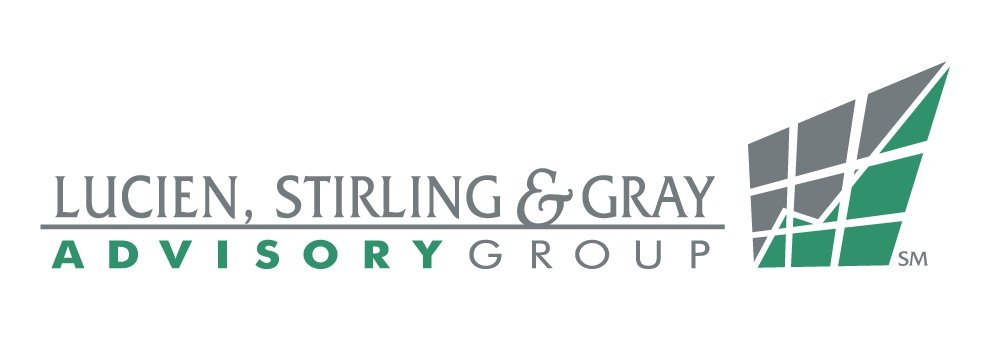President's Message
President’s Message
by - Thomas Twombly
artist - Daisy Lopez
We are living, and investing, through a time of significant and accelerating change. It’s impacting every single aspect of our lives. Everywhere around us we can see and feel the signs of fatigue and heightened emotion that go with it. Social upheaval, political turmoil, economic uncertainty, environmental volatility, geo-political conflict, extreme fiscal and monetary complexity, growing generational discord, and the mind-blowing pace of technological developments are combining in ways we’ve never experienced before to disrupt our desire for stability and security, and to contribute to a sense of on-going crisis – with both danger and opportunity in abundance.
It’s emotionally exhausting. And it’s regularly showing up in ways now that once would have been difficult to imagine. For example, I read a report published on June 20th of this year by Deloitte that found that 60% of employees they surveyed, 64% of managers, and 75% of C-suite executives (my italics) are “seriously considering quitting their jobs in favor of something that would better support their sense of well-being.” Clearly, even the most well-off people in our society are feeling worn down and on edge.
I laughed out loud at my own naivete recently as I looked back at the message I wrote four years ago for our Second Quarter Report in 2019. In it, as an analogy, I touched on the subject of “punctuated equilibrium” – the radical new theory posed in the early 1970s by the paleontologists Steven Jay Gould and Niles Eldredge that completely changed how scientists ever since have viewed evolution.
Gould and Eldredge showed that contrary to all previous understanding, the fossil record demonstrated that long periods of relative stasis and the imagined slow, gradual evolution of species had actually been punctuated periodically by explosive bouts of disruptive change. I had naively thought four years ago that we as a firm had already endured an analogous experience. It’s abundantly apparent now that I didn’t have any idea what I was talking about at that point. Things were just getting started…
Just run down a quick list of all that every single one of us has been forced to navigate in the short four years since. A global pandemic, a forced economic shut-down, a wicked bear market, work from home, Zoom, supply shortages, Quantitative Easing, unequaled Government stimulus, a massive bull market, viciously contested elections, January 6th, Crypto and “meme stock” frenzies, the biggest land war in Europe since WWII, oil, gas, and food crises, mass migration, humanitarian crises, rapid inflation, Quantitative Tightening, another bear market, FTX fraud and collapse, Bank failures, and now the rapid and much-hyped explosion of AI… And I’m certain we’re not done yet.
I think it’s probably a safe bet to say that 100 years from now, this will be a period that is still studied and written about by countless scholars, sociologists, economists, historians, and political scientists as they look back with wonder (and a certain amount of disbelief) and try to untangle the lessons of history for their research projects and doctoral dissertations. We are a living case study. So, some of you who are of a certain age will get it, and hopefully chuckle, when I say “smile, you’re on Candid Camera.”
On a more serious note, I was reminded of the evolutionary change analogy I wrote about in 2019 by something that an investment analyst recently said about the incredible growth of artificial intelligence. He referred to the breadth of interest in this technology that they’re witnessing right now from companies of all sizes, and from a huge array of industries, as a virtual “Cambrian explosion.” His colleague on the same webinar said, “AI is going to change the world, and life as we know it, full stop.”
Now, as I said in our newsletter of last month, I am not an expert in Artificial Intelligence. But when smart, disciplined, highly educated, and very experienced professionals from one of the financial institutions to whom we have entrusted investment assets for decades say things like this, it’s worth paying attention.
They, and most of the other firms to whom we entrust assets, are already putting money to work on behalf of our clients with great businesses that recognize opportunities to expand their reach, as well as their productivity and profitability with the wise application of machine learning. They are also highly alert to the fact that this rapidly advancing technology may well change the “moats” of other existing businesses that may have grown complacent from past success and are therefore vulnerable to disruption. And they’re mindful of “a highly dynamic set of 2nd and 3rd order impacts” that could result in both unforeseen opportunities and threats to individual companies and to industries as a whole with the passage of time. This is truly a watershed period we are living through.
Like some of you, perhaps, I am in the early stages of my own exploration. I’m looking into some of the exciting possibilities AI may eventually present to Lucien, Stirling & Gray to enable us to serve you and our other clients more effectively. I am curious, and I have encouraged others at Lucien, Stirling & Gray to be curious as well. I think it’s important that we maintain a growth mindset. As Darwin said, “it’s not the strongest of the species that survives, or the fittest, but the one that’s most adaptable to change.”
At the same time, we remain constantly mindful that this technology is still unregulated, while we as a firm are highly regulated. We have a duty of strict confidentiality and privacy to every client we serve, and data security is paramount in our firm. We believe in patience, prudence, and discipline. We take our fiduciary responsibility to you seriously, and we will always make sure we act like it.
Thank you again for your continued confidence and trust.
Thomas G. Twombly
President

